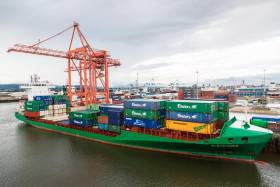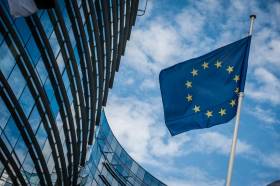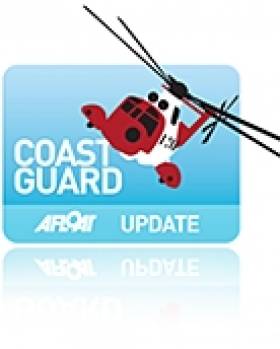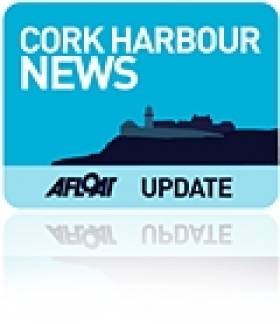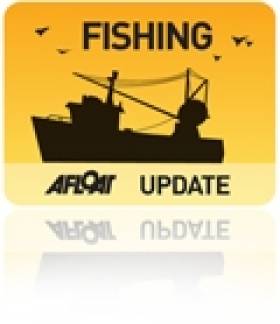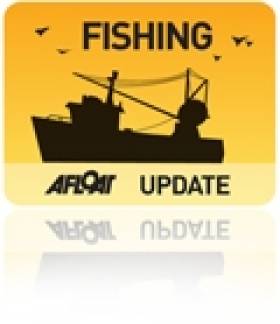Displaying items by tag: European Commission
The European Commission is surveying industry and private boat owners regarding the mutual recognition of private boater licences.
Consultancy firm Panteia is collaborating with the Commission on a study to determine the advantages and drawbacks of recognising licenses and qualifications for private boaters across Europe.
Panteia has developed two surveys: one tailored for industry and one for the general public. The average response time for both surveys is five minutes.
These surveys aim to collect qualitative feedback and quantitative data to gain a comprehensive understanding of the current landscape of license recognition. Responses are requested by Wednesday 10 April.
European Parliament Votes in Favour of European Port Strategy
The European Parliament has urged the European Commission to present a European port strategy by the end of 2024.
A report approved today by the parliament’s plenary session in Strasbourg highlights the risk of economic dependence, espionage and sabotage, while also emphasising the need to maintain a competitive framework for port activities.
The report, which passed by 585 votes in favour to 21 against and 26 abstentions has been supported by Ireland South MEP Seán Kelly, who said that “it is crucial for Europe, and Ireland in particular, to ensure that our ports are not only competitive but strategically developed to meet the demands of the future”.
The report highlights concerns about non-EU countries' economic presence in European ports, with particular attention to China, Kelly notes.
"While we welcome international collaboration, we must be vigilant about potential risks such as economic dependence, espionage, and sabotage. Ireland, through ports like Shannon Foynes, Bantry, Cork and Rosslare, can take a lead in ensuring our maritime infrastructure remains secure and resilient,” he says.
"The development of offshore wind in the Shannon estuary will be fundamental to Ireland's net-zero commitments and contributes significantly to Europe's broader strategy to reduce dependence on fossil fuel imports. It needs to be one of the first names on the team sheet in the governments offshore wind industrial strategy,” Kelly says.
Kelly says it presents an opportunity for a new industrial ecosystem based on green electricity and hydrogen production.
 Scattery Island on the Shannon estuary - The development of offshore wind in the estuary will be fundamental to Ireland's net-zero commitments according to MEP Sean Kelly
Scattery Island on the Shannon estuary - The development of offshore wind in the estuary will be fundamental to Ireland's net-zero commitments according to MEP Sean Kelly
"This isn't just about energy; it's about creating jobs, investing in infrastructure, and positioning Ireland as a key player in the renewable energy market,”he says.
"Cooperation between EU ports is essential to tackle the outlined challenges. Ireland must actively engage in this dialogue, ensuring that our ports are not just participants but leaders in shaping the future of European trade and energy,”he says.
Kelly said he also voted in favour of another related parliamentary report adopted today which warns against Chinese influence on critical infrastructure such as transport infrastructure and ports, telecommunications networks, rare metals and undersea cables.
#Brexit - The European Commission has published notices to stakeholders in maritime transport and in seafarers’ certificates in preparation for the United Kingdom’s exit from the European Union.
These notices are intended to facilitate preparation by EU-27 Member States and by wider stakeholders for the contingency that on 30 March 2019 the UK leaves the EU without a deal on a transitional period having been agreed (ie the no deal, disorderly Brexit scenario).
Draft legal text on a transition period, extending to 31 December 2020, is currently being negotiated with the UK. If, as part of the withdrawal process, this text is agreed and approved by EU member states and the European Parliament, many of the elements reflected in these notices will only become relevant at the end of the transition period.
However, in cases where UK ‘leading authorities’ conduct risk assessments, examinations, approvals and authorisation procedures under EU law, a leading authority in an EU-27 member state will need to take over from the UK authority from the withdrawal date (29 March 2019).
UK leading authorities currently provide product authorisations for certain medicines, pesticides, biocides, chemicals (REACH) and plant varieties. The commission has begun engaging EU-27 technical experts to seek to ensure that product authorisation processes transfer from UK leading authorities in the smoothest manner possible.
Full details are included in Marine Notice No 07 of 2018, a PDF of which is available to read or download HERE.
As previously reported on Afloat.ie, the European Sea Ports Organisation has developed a position paper calling on Brexit negotiators to prioritise maritime transport in the second phase of negotiations.
#Ports&Shipping - The European Commission last week published the new proposal on the revision of the Port Reception Facilities (PRF) Directive.
In response to the new proposal, the European Sea Ports Organisation (ESPO) has welcomed in principle its objective to build upon the substantial progress achieved under the existing Directive.
European ports believe that any provisions leading to better enforcement of the obligation for ships to deliver waste at shore are welcome. The alignment of specific elements of the Directive with the International Convention for the Prevention of Pollution from Ships (MARPOL) gains ESPO’s support. ESPO also believes that addressing the waste from fishing ships (fishing nets) and recreational craft will lead to a more comprehensive policy of tackling the sea-based sources of marine litter. Finally, European ports welcome that new types of waste, such as scrubber waste, have been addressed.
“We welcome that the proposal seeks to increase efficiency, reduce administrative burden and aims to fully respect the ‘polluter pays’ principle. We now need to assess in detail the concrete provisions that are on the table and see if the options put forward by the Commission are the best way to guarantee an efficient but responsible regime for managing waste from ships. Ship generated waste has always been a high priority for European ports. Port authorities are certainly willing to take their responsibility within their competences and financial possibilities”, says ESPO’s Secretary General Isabelle Ryckbost.
ESPO recognises that better enforcement is not the only way to reduce the waste discharged at sea. Providing the right incentives is equally important. The fee system introduced by the current Directive whereby ships are paying a fixed minimum fee when calling at a port, whether they are delivering waste or not, has certainly contributed to the delivery of increased quantities of waste on shore. European ports understand that strengthening this incentive policy is part of the current proposal. However, introducing a fee system whereby ships can deliver unlimited amounts of garbage, including dangerous waste and cargo residues for a fixed fee seems to be a severe and unacceptable divergence from the ‘polluter pays’ principle. It risks to discourage tackling waste at source by reducing volumes generated onboard, which has been the cornerstone of the EU waste policy.
“The incentives as foreseen in the current Directive have without doubt been effective in reducing the waste gap. Continuing on this path seems a reasonable choice. Setting a price for an average quantity could be workable. But allowing ships to deliver even unreasonable quantities of garbage or dangerous waste for a fixed price would neither be responsible nor efficient. Equally we believe it is up to the port to decide if and when a rebate on the fee can be given to a ship. We may not forget that receiving and managing waste comes at a cost. It is the port authority that will have to pay the difference between the fee and the real costs of receiving and handling the waste amounts actually received. The proposal is now on the table. We are open to further discuss the issue with the Commission, Parliament and Council and are confident that a good solution can be reached,” adds Isabelle Ryckbost.
Consultation On Common EU Rules For Small Passenger Ships
#Consultation - The European Commission has launched an online consultation to collect views of stakeholders on the extent to which common EU rules could facilitate the internal market for passenger ships below 24 meters in length.
The results of this consultation will inform the forthcoming proposal of the Commission for a Council Recommendation on safety goals and functional requirements for these types of ships.
This consultation is targeted at economic operators involved in building of and trading in small passenger ships, such as shipyards, designers, owners and operators thereof (all other stakeholders can contribute to this consultation if they wish).
It complements the technical work steered by the European Maritime Safety Agency and carried out together with national experts and stakeholders in the framework of the Passenger Ship Safety Expert sub-group.
The consultation is available from the European Commission website HERE. The deadline for responses is Thursday 30 November.
Unified EU Coastguard On The Cards
#COASTGUARD - Greater co-operation between Europe's coastguard organisations is inevitable, according to the Irish Coast Guard director.
Chris Reynolds was speaking at Search and Rescue 2012, the EU Heads of Coastguard conference in Dublin last Thursday, at which he outlined a feasibility study being conducted by the European Commission on a standardised coastguard service across Europe.
As Shephard Media reports, Reynolds admitted that some challenges stood in front of any effective change in the sector, noting that SAR policy at member state level is often spread across many departments.
But the Costa Condordia disaster off the Italian coast recently may focus governments to develop a "sense of urgency" on the issue, he said.
In the keynote address at the conference, Italian coastguard chief Giuseppe Troina said it was fortunate that the death toll in that incident had not been much greater, emphasising that more than 4,000 people survived the cruise ship's sinking.
The Irish Times has more on the story HERE.
NI Faces Big Fine Over Horse Mussels
#MARINE WILDLIFE - Northern Ireland faces a whopping £8 million (€9.6 million) fine from the EU over its failure to protect horse mussels.
According to BBC News, "little has been done" to protect horse mussel reefs in Strangford Lough despite promises from two government departments as far back as six years ago.
Last year Afloat.ie reported on a study from Queen's University Belfast that revealed the extent of damage to horse mussel reefs in the lough by fishing activity.
Strangford Lough is officially protected as a Special Conservation Area and a Marine Nature Reserve, as well as an Area of Special Scientfic Interest, but as BBC News states, "in reality there has been little protection put in place".
Horse mussels are pivotal to the lough's ecosystem, as some 100 other species rely on the reefs formed by the mussels in the seabed for their habitat.
NI officials now have just a few months to persuade the European Commission that they are taking strong action to protect the species, otherwise they will be charged with breaking EU directives.
BBC News has more on the story HERE.
Haulbowline Toxic Waste Site Will Be Cleaned Up by 2014 Says Govt
#CORK HARBOUR - The Government has finally set a deadline for the clean-up of the toxic waste site on Haulbowline Island in Cork Harbour, under threat of massive fines from the European Commission.
RTÉ News reports that a two-and-a-half year deadline has been set to complete the sanitation of the illegal dump on the island at the site of the former Irish Steel/Ispat plant.
Some 500,000 tonnes of waste, including toxic heavy metals and cancer-causing materials, have been blamed for the area's notoriety in having one of the highest cancer rates in Ireland.
As previously reported on Afloat.ie, in October last the Government signed off on a €40m package to begin clean-up of the toxic waste site on the island.
In an editorial yesterday, the Irish Examiner welcomed the Government's decision, but emphasised it was long overdue.
"[It] cannot dispel the great frustration that it has taken so very long to do what should have been done years ago," the paper said.
"To this day nobody has explained how an illegal dump of this scale was allowed to develop on a site that is not exactly secluded, remote or out of the public eye - it is, after all, just next door to the country’s main naval base."
The Irish Examiner also reports on worries that the toxic waste may never be fully removed from the island, but rather sealed off and made impermeable.
Minister for the Marine Simon Coveney was quoted as saying: "This whole clean-up plan will be peer reviewed so it’s best practice but it could be better to contain the material onsite rather than remove it.
"We will be doing all that is reasonable to ensure the site is safe."
Minister Shows Displeasure With Euro Fishery Plans
#FISHING - The Minister for the Marine has spoken out over plans by the European Commission to make cuts in certain fish stocks that could see €65 million in lost earnings for Ireland's fishing fleet.
According to The Irish Times, Minister Simon Coveney said there was "very credible data prepared by the Marine Institute to back up" the case against proposals by EU maritime affairs commissioner Maria Damanaki to cut certain stocks by as much as 25%.
He told the paper he would "challenge anyone to say we are not sticking with scientific advice", and also suggested that the fishing industry is being more responsible in its own proposals.
"The European Commission is recommending a 60 per cent increase in the total allowable catch for Celtic Sea herring, whereas the industry is seeking 30 per cent as a more responsible approach,” said Minister Coveney.
“So this shows it is not true to say that fishermen are irresponsible, as some would suggest."
EU fish talks continue today in Brussels. The Irish Times has more on the story HERE.
Damanaki Promises 'Level Playing Field' in Common Fisheries Policy Review
The European Union's maritime affairs commissioner has promised a "level playing field" during the review of the Common Fisheries Policy (CFP), The Irish Times reports.
As previously reported on Afloat.ie, Maria Damanaki was in Dublin on Thursday to discuss reform of the policy with Irish stakeholders.
She admitted that Ireland had suffered under the current policy, which has led to overfishing in Irish waters by other EU member states such as Spain.
The commissioner said that better maritime planning and protection of "small-scale fisheries" were fundamental to the new CFP.
But she denied that Ireland's situation would worsen under the new proposals, which include concessions on transferable quotas that critics - including Minister for the Marine Simon Coveney - fear would see multinationals buying up Irish fishing rights.
She said similar concessions had worked in Denmark, the US, Australia and New Zealand, adding that the system is designed to compensate those who want to leave fishing without straining the EU's finances.
Damanaki also discussed encouraging the development of offshore aquaculture to combat rising imports of seafood, and her commitment to ending the practice of fish discards - which may also involve a programme to provide lower-income individuals with cheaper fish.
The Irish Times has more on the story HERE.



























